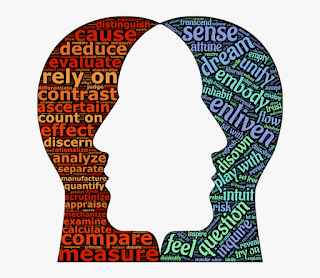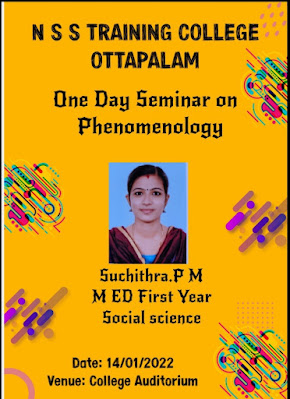Phenomenology is the study structures of consciousness as experienced from the first person point of view. The central structure of an experience is its intentionality, its being directed toward something, as it is an experience of or about some object. An experience directed toward an object by virtue of its content or meaning (which represents the object) together with appropriate enabling conditions.
movement of Phenomenology
The historical movement of phenomenology is the philosophical tradition launched in the First half of the 20th century by Edmund Husserl, Martin Heidegger, Maurice Merleau-Ponty, Jean-Paul Sartre, et al. that movement, the discipline of phenomenology was prized as the Proper foundation of all philosophy-as opposed. say, to ethics or metaphysics or Epistemology. The methods and characterization of the discipline were widely debated Husserl and his successors, and these debates continue to the present day. (The definition of Phenomenology offered above will thus be debatable, for example, by Heideggerians, but it Remains the starting point in characterizing the discipline.)
Phenomenology as a discipline has been central to the tradition of continental European Philosophy throughout the 20th century, while philosophy of mind has evolved in the Austro-Anglo-American tradition of analytic philosophy that developed throughout the 20 century.
Phenomenology as a Discipline
Phenomenology is a distinct from of discipline but related to other key disciplines in Philosophy, such as ontology, epistemology, logic, and ethics.
Phenomenology has been Practiced in various guises for centuries, but it came into
its own in the early 20 century in the works of Husserl, Heidegger, Sartre, Marceau-Pony and others. Phenomenological issues f intentionality, consciousness, qualia, and first-person perspective have been prominent in recent philosophy of mind. Phenomenology is commonly understood in either of two ways disciplinary field in philosophy, or as a movement in the history of philosophy The discipline of phenomenology may be defined initially as experience, or consciousness. Literally, phenomenology is the Structu phenome Appearances of things, or things as they appear in our experience, or the ways we
experience Things, thus the meanings things have in our experience. Phenomenology studies conscious Experience as experienced from the subjective or first person point of view. This field of Philosophy is then to be distinguished from, and related to, the other main fields of Philosophy: antology (the study of being or what is), epistemology (the study of knowledge), Logic (the study of valid reasoning), ethics (the study of right and wrong action), etc.
Recent Approach on Phenomenology, it is often restricted to the Characterization of sensory qualities of seeing, hearing, etc.: what it is like to have sensations of various kinds. However, our experience is normally much richer in content than mere Sensation. Accordingly, in the phenomenological tradition, phenomenology is given a much Wider range, addressing the meaning things have in our experience, notably, the significance of objects, events, tools, the flow of time, the self, and others, as these things arise and are Experienced in our "life-world.
Basically, phenomenology studies the structure of various types of experience ranging from Perception, thought, memory, imagination, emotion, desire, and volition to bodily awareness, Embodied action, and social activity, including linguistic activity. The structure of these Forms of experience typically involves what Husserl called "intentionality", that is, the Directedness of experience toward things in the world, the property of consciousness that it is A consciousness of or about something. Accordingto classical Hussert an phenomenology, Our experience is directed toward represents or "intends-things only through particular Concepts, thoughts, ideas, Images, etc. These make up the meaning or content of a given Experience, and are distinct from the things they present or mean.
Collected data responses Click here
Graphical representation of selected data
PPT ON PHENOMENOLOGY













